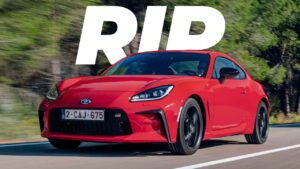Revamping the Continent’s Green Strategy: EPP’s Urgent Plan for Change.
During the upcoming June elections, Europeans will cast their votes for a new European Parliament, one of the seven institutions of the European Union. The involved parties are currently in the process of developing their electoral platforms, and information has emerged indicating that the largest party in Europe may be considering postponing the ban on internal combustion engines across the continent.
Last week, Euractiv managed to obtain a copy of the manifesto from the European People’s Party group (EPP), known for being a center-right political organization. Manifestos serve as a means for candidates to showcase their values and beliefs to voters, giving them an insight into the principles they stand for. Of particular interest in this party’s manifesto was their stance on transportation, specifically regarding the gradual elimination of combustion engines in Europe. This statement has generated significant buzz and attention, highlighting the party’s dedication to this cause.
According to the EPP, led by Jens Gieseke, a German politician who represented the party during talks on CO2 regulations for automobiles, they have consistently opposed the proposed 2035 ban on internal combustion engines. The party has been vocal in their criticism of what they refer to as the Commission’s “prohibition ideology.” Gieseke, who has been a staunch critic of the plan to phase out combustion engine cars, has previously cautioned against the potential consequences, likening it to the “Havana effect” where Europeans would continue to drive older combustion-powered vehicles for many years, similar to the situation in Cuba’s capital city.
The EPP’s position is in line with their “technology-open” strategy for decarbonization, which highlights the EU’s commitment to not showing preference towards certain technologies, such as electric vehicles. This viewpoint is also shared by the European Commission, although some critics remain skeptical. However, what stands out the most is the EPP’s clear statement to “review [the law] at the earliest opportunity.” This declaration holds significant consequences, as the largest faction in the European Parliament expresses their intent to reevaluate a legislation that has already been approved.
Last year in March, an agreement was made between Germany and the European Union regarding a potential prohibition set to commence in 2035. Despite this ban, car companies will still be permitted to market internal combustion engine (ICE) vehicles that use e-fuel. E-fuel is generated using carbon capture and hydrogen production methods powered by renewable energy sources. As a result, when e-fuel is burned, the captured CO2 is released back into the air, making it carbon-neutral.
Source: Euroactiv





